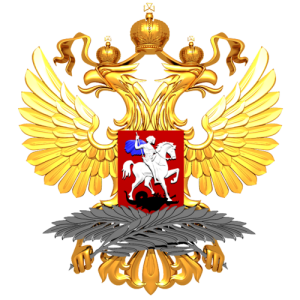13 July 201618:00
Foreign Minister Sergey Lavrov’s answers to media questions at a news conference following a meeting of the Council of Ministers of Foreign Affairs of the Caspian States, Astana, July 13, 2016
1314-13-07-2016

Question: What are your thoughts on the outcome of today's meeting? I would also like to touch on the activities of the Russia-NATO Council. Do you think that today’s Russia-NATO Council meeting can become a lasting, full-fledged format? In particular, is there any chance of reaching any agreements on practical cooperation in Afghanistan?
Sergey Lavrov: I fully share the assessment of our meeting today, which, incidentally, began yesterday. Foreign Minister of Kazakhstan Erlan Idrissov has provided this assessment, and we all share it. We have done a fair amount of productive work and made headway in several areas. There are only a few issues left that were already named earlier. What’s left to do with regard to them is to find the right wording for the principles agreed upon by the presidents. As you may be aware, the sea bottom is divided between the neighbouring countries. Russia has already signed such agreements with Kazakhstan and Azerbaijan. With regard to delimiting water areas, the presidents agreed at the summit in Astrakhan in September 2014 on designating benchmarks in relation to the territorial and sovereign waters and the fishing zone.
I believe it is absolutely realistic to aim for signing the Convention on the Legal Status of the Caspian Sea in 2017. I think this can be done even in the first half of the year. In the next couple of months, our experts will focus on it intensively. Then, we will see what role the foreign ministers will play at that stage.
Notably, in addition to the convention, today we agreed to speed up our cooperation on implementing existing sectoral agreements and to try to prepare additional documents, which are the subject of the talks. We have a working Cooperation Agreement on Preventing Emergency Situations. A rapid-response mechanism to provide relief in the case of natural and manmade disasters is being created in the Caspian Sea area. In September, our partners will join us for collective training of our rescue services in the Astrakhan Region.
We discussed the need to implement the agreements included in the Agreement on Conservation and Sustainable Use of Aquatic Biological Resources of the Caspian Sea, as well as the Agreement on Security Cooperation. We discussed ways to counter poaching. There are specific ideas, which we have also made available to our experts. Everyone agreed on the need to draft large industry-specific agreements, particularly in the sphere of trade and economic cooperation and transport, as well as an agreement to prevent incidents involving warships in the Caspian Sea. I think that confidence-building measures and transparency create a very good foundation for further addressing and resolving outstanding issues.
I don’t think we’ll be seeing the same kind of atmosphere at the Russia-NATO Council meeting today. The situation there is somewhat different.
Primarily, we want to understand NATO's clarifications regarding the decisions taken at the summit in Warsaw on July 8-9. The public comments on these decisions are not encouraging. What we are seeing is the prevailing desire to perpetuate an artificial image of Russia as an enemy in order to enforce unity in the ranks and consolidate positions. Unfortunately, our NATO partners are again uniting on the basis of the lowest common denominator, which is formed by the openly Russophobic minority in Western nations.
With regard to the long-standing relationship with NATO, it was not us who broke off the agreements on counterterrorism cooperation or who froze all cooperation to support the Afghan security forces so they can more effectively fight ISIS and other radicals. It was not us who suspended all other forms of cooperation between Russia and NATO.
When our partners announced that they were willing to hold today’s Russia-NATO Council meeting, I heard someone saying that they presented it as a gesture of goodwill. They said they agreed to hold the Russia-NATO Council meeting. They did not agree to hold it, because we didn’t ask them to. If they froze this mechanism, then it’s up to them to take steps to revive it. They did ask us to agree to a meeting of the Russia-NATO Council. We met them halfway because, by and large, we never turn down a conversation. I hope that this will be a responsible conversation, not a show for the public, not a staged event to score some propaganda points, but rather a conversation that is consistent with the grave situation that has developed in the wake of NATO's policy on military and political security in Europe.
With regard to future activities of the Russia-NATO Council, we know for a fact – I don’t think I’m revealing a big secret here – that leading NATO countries, primarily European, called for making the work of the Council regular again as it was in the past. But the minority that derives immense pleasure from adopting Russophobic positions completely blocked this proposal, saying that they will have to meet before they can take a decision. It looks like that they are playing a game of their own and fail to understand the important events that are unfolding.
I’m referring to the division in Europe. I very much hope that adult policymakers in Europe and the United States are fully aware of it, and they will change this policy to reflect the agreements incorporated in the OSCE and the Founding Act signed between the Russian Federation and North Atlantic Treaty Organisation. We are willing to do so. Let's see how serious and responsible our Western partners are with regard to the situation in Europe.
